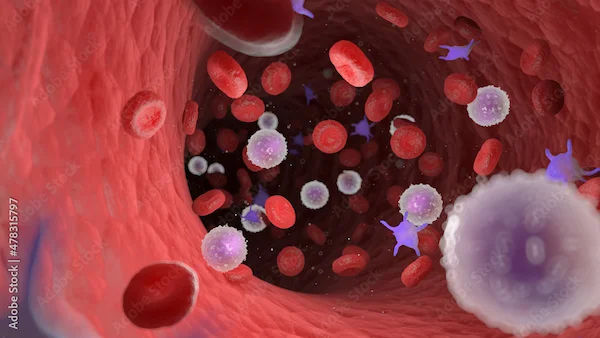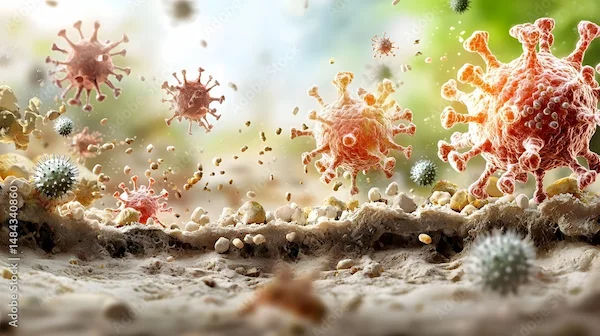Understanding Down Syndrome: Symptoms and Treatment
Learn about Down Syndrome in our comprehensive guide. Understand its symptoms and physical characteristics, and explore the various treatment and support options available.

Written by Dr. Rohinipriyanka Pondugula
Reviewed by Dr. Md Yusuf Shareef MBBS
Last updated on 22nd Aug, 2025

Down Syndrome is a genetic condition that affects a person's physical and mental development. It occurs when an individual has an extra copy of chromosome 21, leading to distinct facial features, developmental delays, and sometimes health complications. While Down Syndrome is a lifelong condition, early intervention and proper care can significantly improve quality of life.
This article will help you understand the symptoms, causes, and treatment options for Down Syndrome in simple terms. Whether you are a parent, caregiver, or someone seeking information, we aim to provide compassionate and easy-to-follow guidance.
What is Down Syndrome?
Down Syndrome (also called Trisomy 21) is a genetic disorder caused by the presence of an extra chromosome 21. Normally, humans have 46 chromosomes (23 pairs), but in Down Syndrome, there are 47 chromosomes due to the extra copy of chromosome 21. This additional genetic material affects the body's development, leading to physical and intellectual differences.
Types of Down Syndrome
There are three main types:
1. Trisomy 21 (Most Common) – Occurs in about 95% of cases, where every cell has an extra chromosome 21.
2. Mosaic Down Syndrome – A rare form where only some cells have the extra chromosome. Symptoms may be milder.
3. Translocation Down Syndrome – The extra chromosome 21 is attached to another chromosome. This type can sometimes be inherited.
Symptoms of Down Syndrome
People with Down Syndrome have certain physical characteristics and developmental differences. Some common symptoms include:
Physical Features:
Flattened facial profile
Upward slanting eyes
Small ears and a short neck
A single deep crease across the palm (simian crease)
Low muscle tone (hypotonia)
Shorter height
Developmental & Cognitive Symptoms:
Delayed speech and language development
Mild to moderate intellectual disability
Slower learning and problem solving abilities
Short attention span
Health Complications (Possible but Not Always Present):
Heart defects (present in about 50% of babies)
Hearing and vision problems
Thyroid disorders
Higher risk of infections
Digestive issues
Every individual with Down Syndrome is unique—some may have mild symptoms, while others may face more challenges.
Causes of Down Syndrome
The exact cause of the extra chromosome 21 is unknown, but certain factors increase the risk:
Advanced Maternal Age – Women over 35 have a higher chance of having a baby with Down Syndrome.
Family History – If a parent carries the translocation type, there’s a risk of passing it on.
Random Genetic Error – Most cases occur due to a random error during cell division.
It’s important to remember that Down Syndrome is not caused by anything the parents did before or during pregnancy.
Consult a Top Psychiatrist
Diagnosis of Down Syndrome
Down Syndrome can be detected before or after birth through screening and diagnostic tests.
Prenatal Screening (During Pregnancy):
Ultrasound – Checks for physical markers.
Blood Tests – Measures levels of certain proteins linked to Down Syndrome.
NonInvasive Prenatal Testing (NIPT) – A simple blood test that analyzes fetal DNA.
Diagnostic Tests (Confirmatory):
Amniocentesis – A small sample of amniotic fluid is tested.
Chorionic Villus Sampling (CVS) – A tissue sample from the placenta is analyzed.
After Birth:
A doctor can diagnose Down Syndrome based on physical features.
A karyotype test (blood test) confirms the presence of an extra chromosome 21.
If you're pregnant and concerned about genetic risks, you can book a prenatal screening test through Apollo 24|7 for expert guidance.
Treatment & Management of Down Syndrome
While there is no cure for Down Syndrome, early intervention and therapies can help individuals lead fulfilling lives.
Medical Care:
Regular checkups for heart, hearing, vision, and thyroid function.
Surgery (if needed) for heart defects or digestive issues.
Therapies & Support:
Speech Therapy – Helps improve communication skills.
Physical Therapy – Strengthens muscles and improves mobility.
Occupational Therapy – Teaches daily living skills (eating, dressing).
Special Education Programs – Tailored learning plans for better development.
Lifestyle & Emotional Support:
Encouraging Independence – Simple tasks like dressing or brushing teeth help build confidence.
Social Interaction – Playgroups and inclusive schooling improve social skills.
Healthy Diet & Exercise – Prevents obesity and strengthens muscles.
Families should also seek support groups and counseling to manage emotional wellbeing.
Can Down Syndrome Be Prevented?
Since Down Syndrome is a genetic condition, it cannot be prevented. However, prenatal testing helps parents prepare and make informed decisions.
Living with Down Syndrome: Hope & Progress
With advancements in medical care and inclusive education, people with Down Syndrome can lead happy, productive lives. Many attend school, work, and even live independently with support.
Success Stories:
Many individuals with Down Syndrome excel in arts, sports, and advocacy.
Early therapy and love from family play a huge role in their development.
If you have a loved one with Down Syndrome, remember: patience, encouragement, and access to the right resources make all the difference.
When to Consult a Doctor?
If you suspect developmental delays or notice Down Syndrome symptoms in your child, consult a pediatrician or genetic specialist. Early intervention is key to better outcomes.
You can schedule a consultation with expert doctors on Apollo 24|7 for personalized care and guidance.
Final Thoughts
Down Syndrome is a lifelong condition, but with the right support, individuals can thrive. Understanding the symptoms, causes, and treatment options helps families provide the best care possible.
If you have concerns, don’t hesitate to seek medical advice. Every child with Down Syndrome has unique strengths—nurturing them with love and support makes all the difference.
Would you like to book a genetic counseling session or developmental assessment for your child? Visit Apollo 24|7 today for expert care.
We hope this guide has been helpful. Stay informed, stay compassionate!
Consult a Top Psychiatrist
Consult a Top Psychiatrist

Dr. Puli Vanaja Reddy
Psychiatrist
15 Years • MBBS, MPH (USA), DCP (UK)
Hyderabad
Apollo Hospitals Jubilee Hills, Hyderabad
(175+ Patients)

Dr. Supriya D Silva
Psychiatrist
6 Years • MBBS,DPM Diploma in Psychological Medicine, DNB (Psychiatry)
Bengaluru
Apollo Clinic, Sarjapur Road, Bengaluru

Dr Rohit Ranjan
Psychiatrist
10 Years • MBBS, MD (Psychiatry)
Bengaluru
Apollo Medical Center, Marathahalli, Bengaluru

Dr. Ankit Halder
Psychiatrist
7 Years • MBBS,MD(PSYCHIATRY)
Kolkata
Serenity Mindcare (A Neuropsychiatry Clinic), Kolkata

Dr. Deborshi Das
Psychiatrist
7 Years • MBBS, MD Psychiatry
Barasat
Diab-Eat-Ease, Barasat

.webp)


